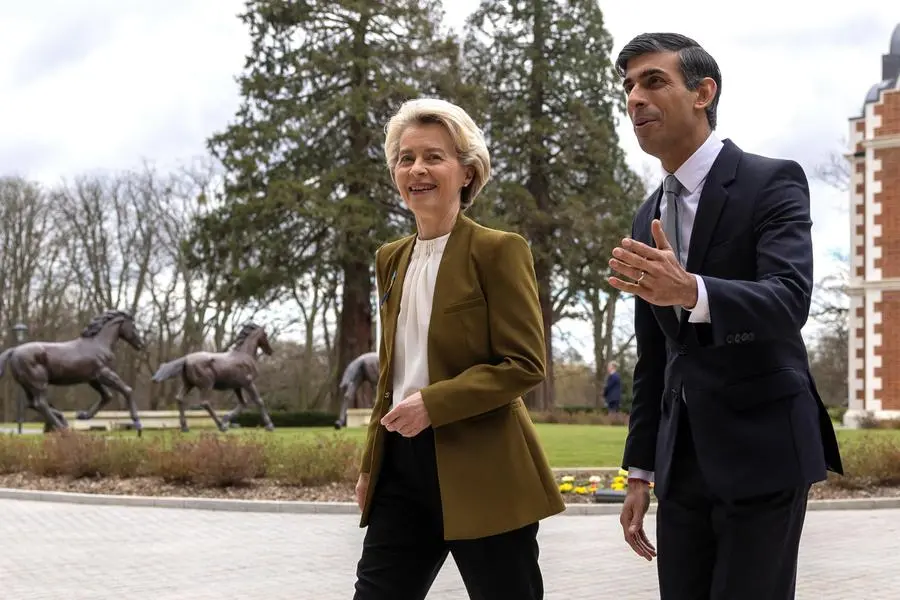PHOTO
LONDON - British Prime Minister Rishi Sunak has struck a new deal on post-Brexit trade rules for Northern Ireland, gambling that the reward of better ties with the European Union is worth any discord it might cause within his own party.
A government source said Sunak had agreed the terms with European Commission President Ursula von der Leyen as they met at a hotel west of London. They will hold a joint news conference at 1530 GMT.
The agreement marks a high-risk strategy for Sunak who has been looking to secure a compromise and improve relations with Brussels - and the United States - without sufficiently angering the wing of his party most wedded to Brexit.
Sunak's spokesman had earlier told reporters that the two sides were in "final talks and significant progress has been made over a number of weeks and months".
The deal seeks to resolve tensions caused by the 2020 post-Brexit arrangements governing Northern Ireland, a British province, and its open border with EU member Ireland.
It remains to be seen, though, whether it will go far enough to end political deadlock in Northern Ireland and satisfy critics in Britain and the province.
The new agreement is expected to ease physical checks on goods flowing from Britain to Northern Ireland, and give the province's lawmakers a say over the EU rules it has to implement under the complicated terms of Britain's exit from the bloc.
London could also set some tax and state aid rules.
Its success could hinge on whether it convinces the Democratic Unionist Party (DUP) to end its boycott of Northern Ireland's power-sharing arrangements. These were central to a 1998 peace deal which mostly ended three decades of sectarian violence in the British province.
DUP leader Jeffrey Donaldson, speaking before news of an agreement emerged, said they would take time to look at the details before deciding whether to accept it.
Victory would strengthen Sunak's hold over his Conservative Party and enable him to move past the most contentious issue on his agenda, as he seeks to catch up with the opposition Labour Party, now well ahead in opinion polls, before a national election expected in 2024.
Were he to fail, he would probably face a rebellion from the eurosceptic wing of his party, reviving the deep ideological divisions that have at times paralysed the government since the vote to leave the EU in 2016.
(Writing by Kate Holton, Editing by Christina Fincher, Nick Macfie and Tomasz Janowski)





















